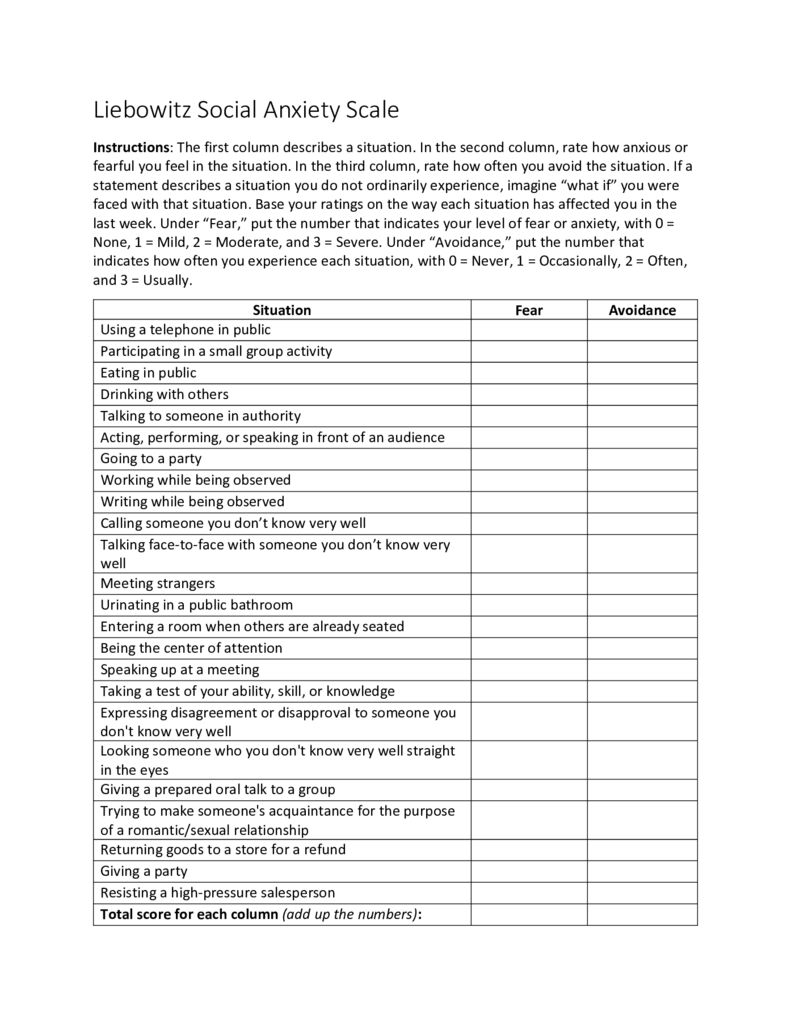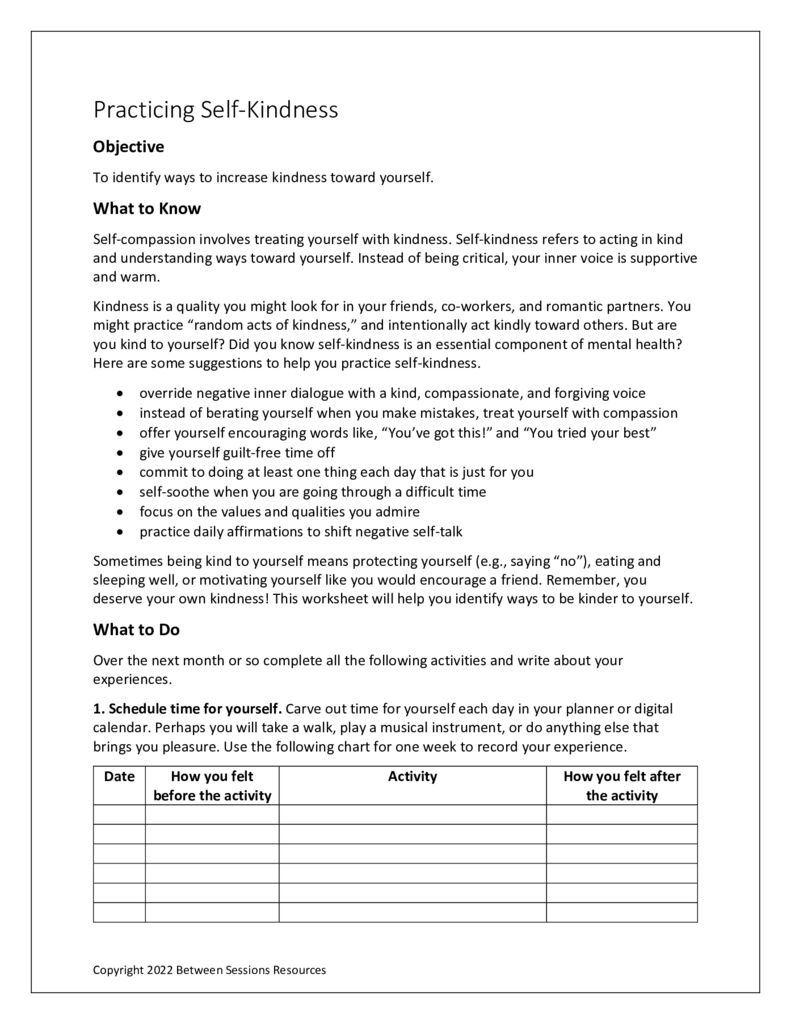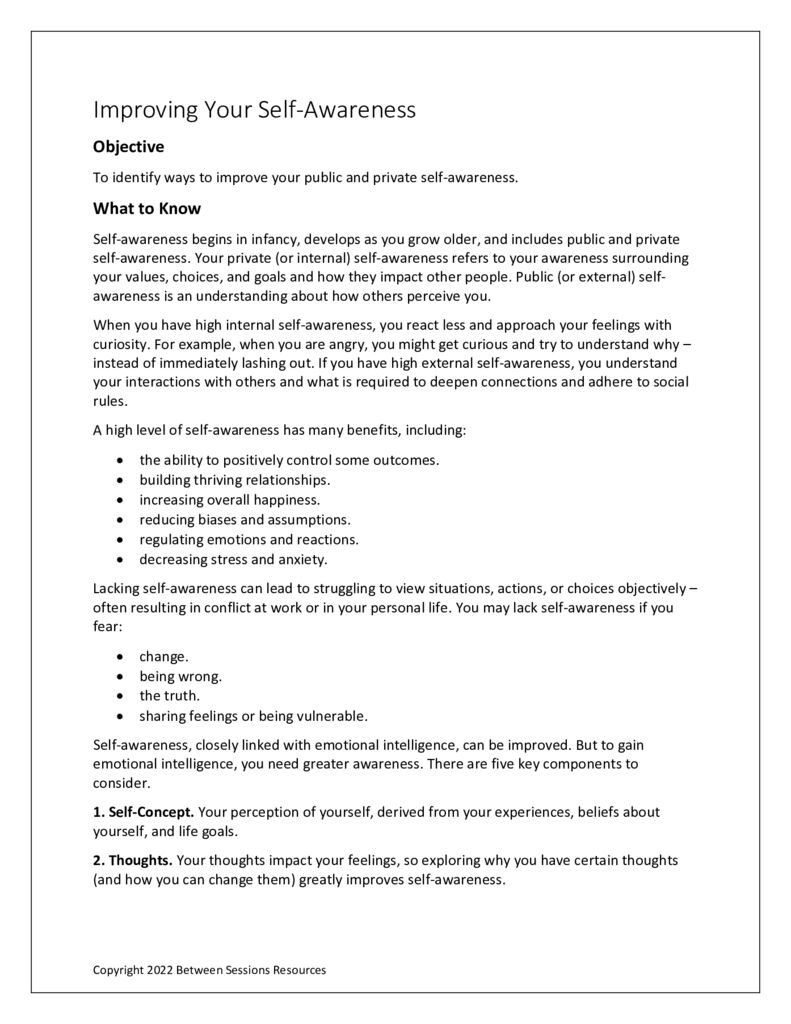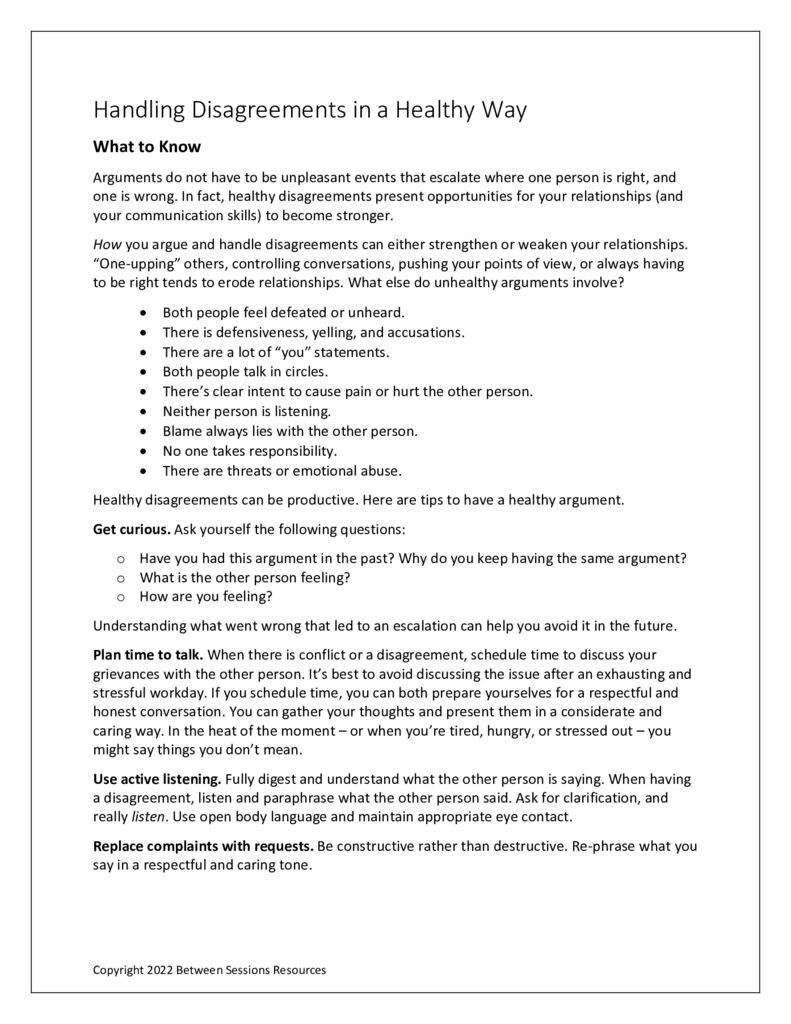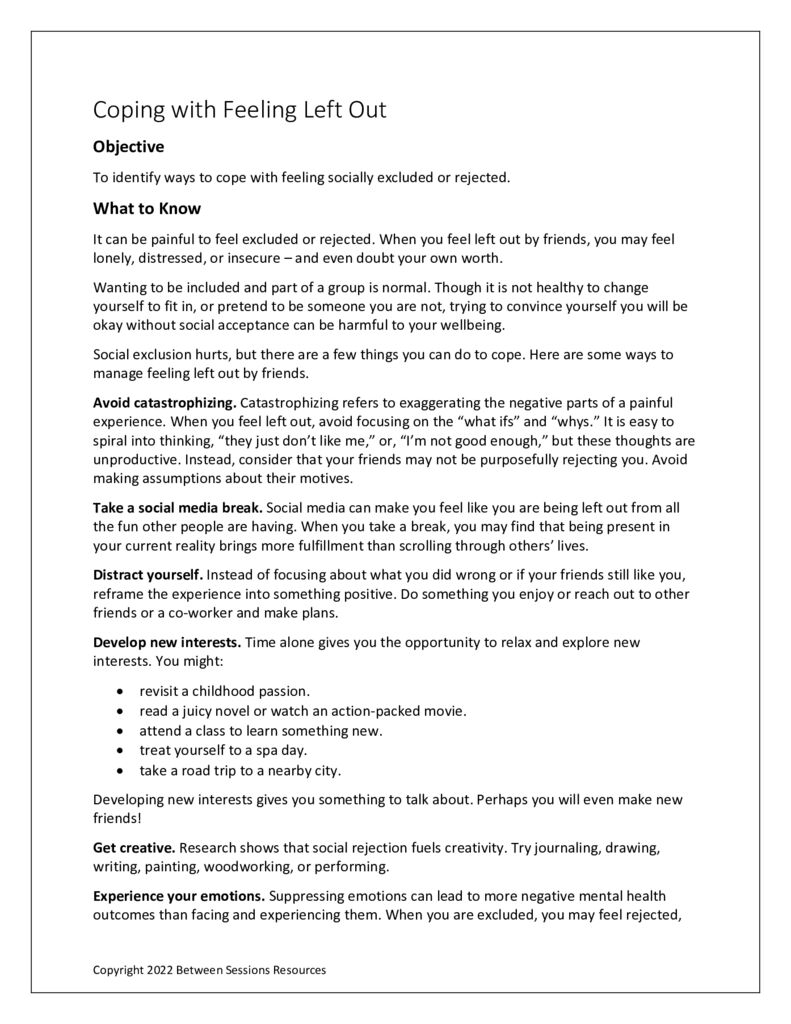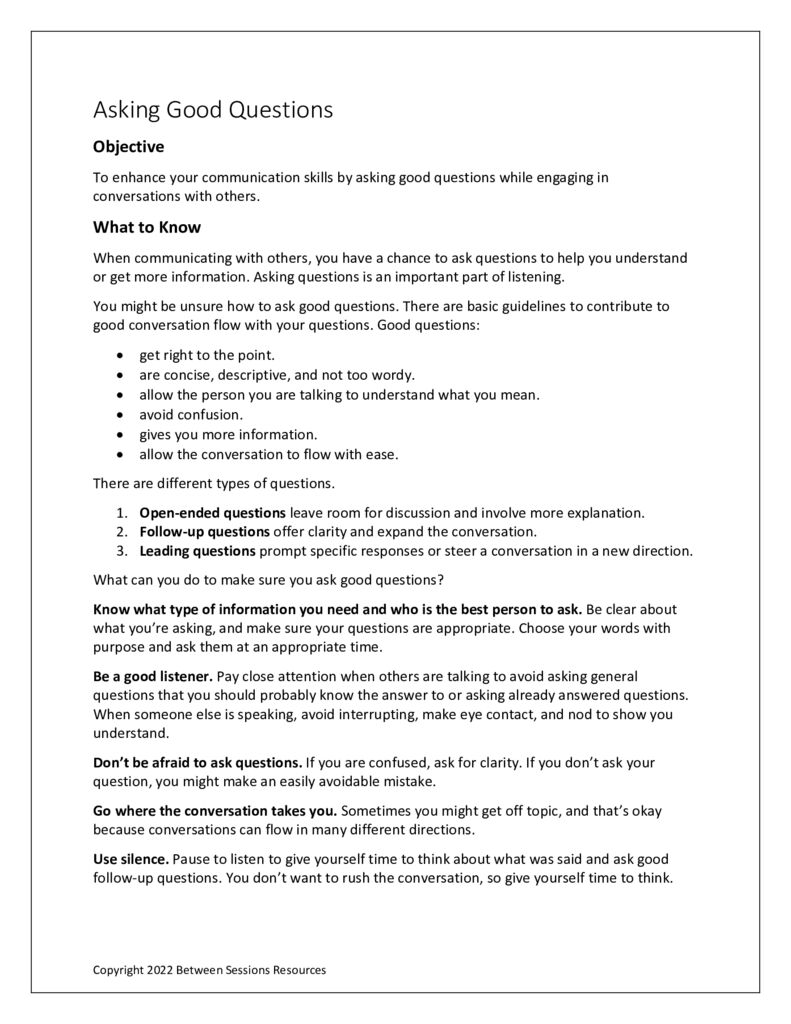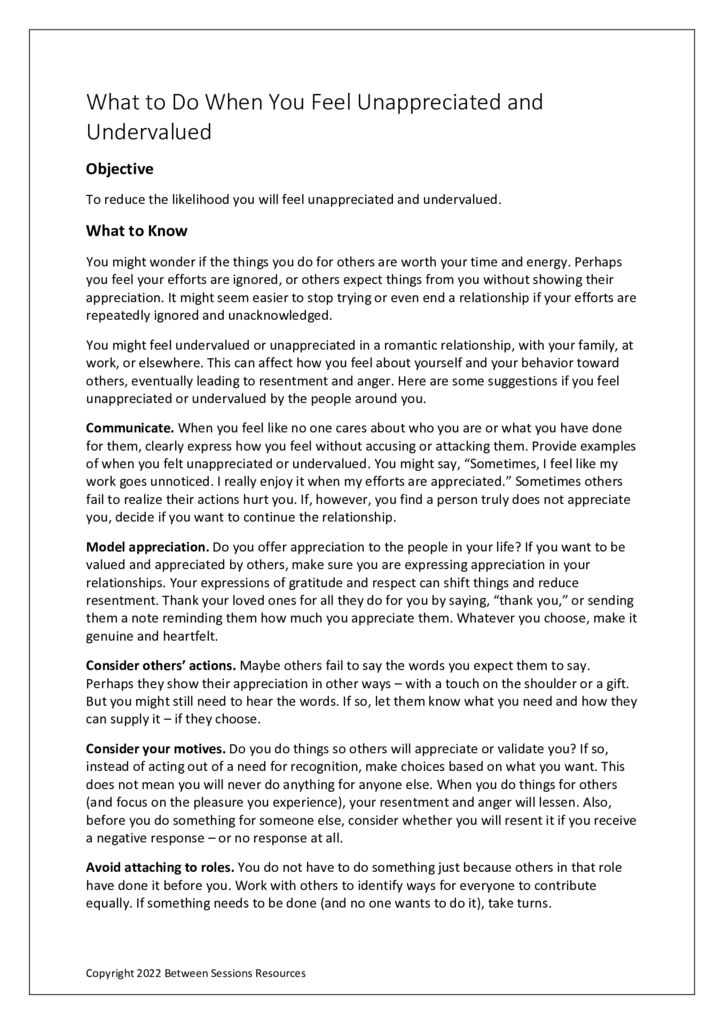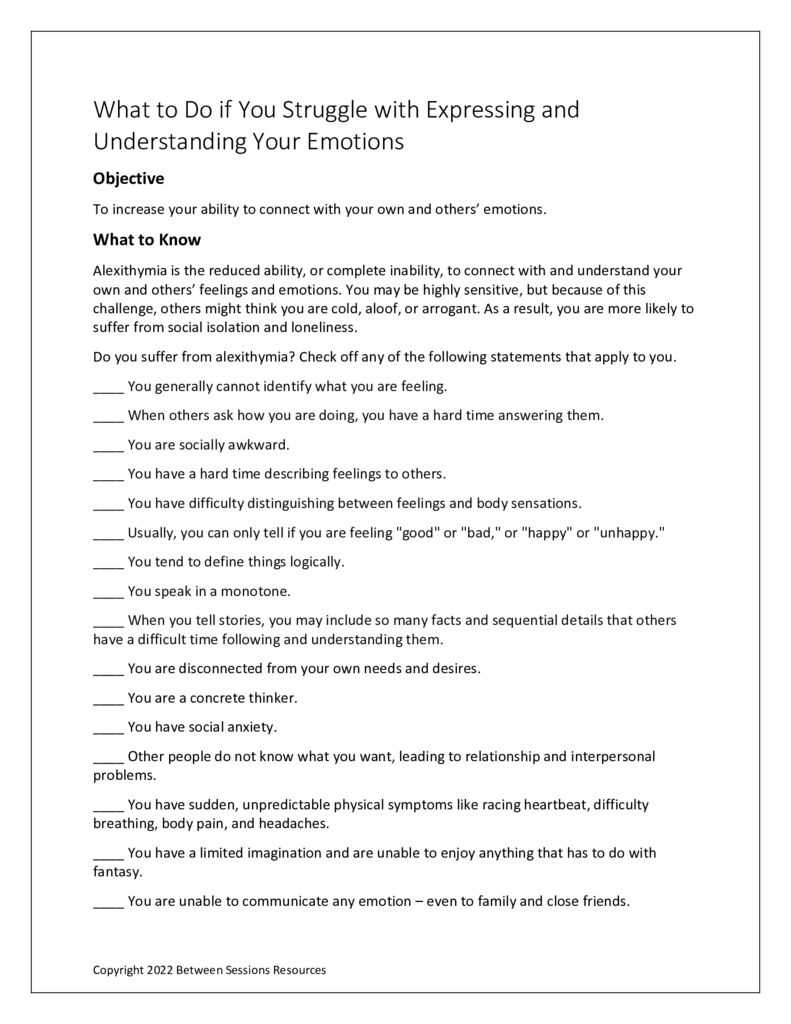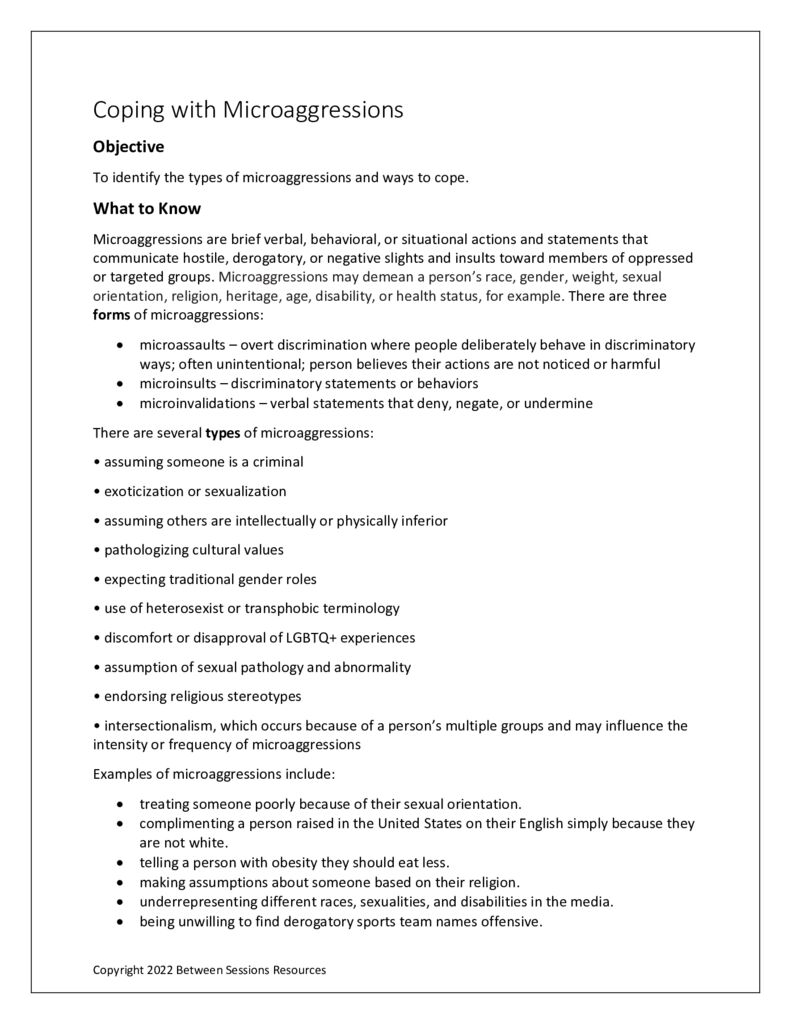This 24-item scale measures the degree of anxiety clients have about social situations as well as the extent to which they avoid each social situation. (0822, social anxiety, relationships)
This worksheet encourages people to increase their kindness to themselves. It gives 14 suggestions on how to increase self-compassion. (0822, self-care, self-compassion)
This worksheet is designed to help people increase their self-awareness which can help in emotional regulation and in social interactions. A chart is provided to help people keep track of their thoughts and feelings as they encounter challenging situations. (0722, self-awareness, insight, emotional intelligence, emotional regulation, relationships)
This worksheet suggests how to have “healthy” disagreements, which can actually strengthen relationships. The worksheet gives specific strategies on how people can take a more productive approach to disagreements. It then gives questions to help people analyze what they did right or wrong in a recent argument. (0722, communication, relationships, arguing, anger)
This worksheet was designed for people who feel left out or excluded by their friends. It contains suggestions on how to deal with this problem ranging from finding new interests to more direct communication. Questions help people understand why social rejection may be occurring and a chart is included to help people expand their social circle. (0622, friendship, ASD, Autism, social skills)
This worksheet deals with the type of communication many people take for granted-asking good questions. The Worksheet review the 3 basic types of questions and 10 points on how to ask good questions that move a conversation forward and make it interesting for another person. (0620, social skills, conversational skills, communication)
This worksheet is designed to help people who feel that others are not acknowledging their efforts to be helpful on an ongoing basis. It provides a dozen suggestions on what people can do to feel better about themselves and those around them. The worksheet is designed to help people think about why feeling appreciated is important to them and how they can get the appreciation they seek. (0522, social skills, relationships, marriage, parenting)
This worksheet is designed to help people if they have alexithymia, “the reduced ability to connect with and understand your own and others’ feelings and emotions.” A checklist is given to help people identify whether they have this problem and if it might be an underlying cause of other struggles. The worksheet gives three steps to help people learn to identify and express their feelings plus techniques on how to practice these steps. (0522, emotions, emotional regulation, emotional intelligence, communication)
This worksheet is designed to help people examine biases and prejudice towards groups of people. The worksheet suggests how to be aware and challenge biases using a 5-step P.A.U.S.E. Technique. (0522, bias, minority groups, prejudice, attitudes)
This worksheet is designed to help people deal with “microagressions, ” brief verbal, behavioral, or situational actions and statements that communicate hostile, derogatory, or negative slights and insults toward members of oppressed or targeted groups. Microaggressions may demean a person’s race, gender, weight, sexual orientation, religion, heritage, age, disability, or health status. The worksheet describes a process on how people can think about and react to microaggressions. (0522, prejudice, discrimination, diversity, aggression)

